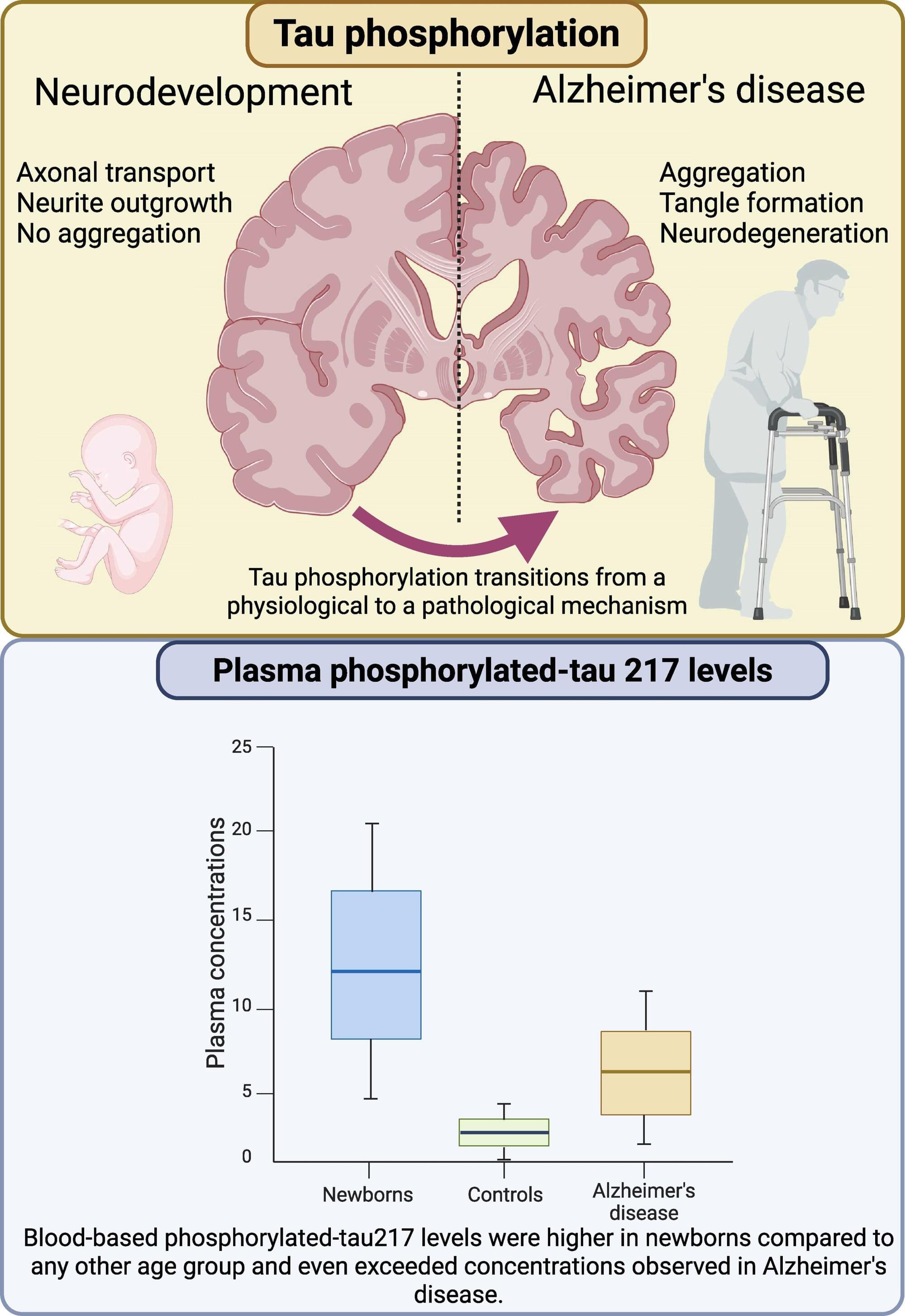Newborn babies and patients with Alzheimer’s disease share an unexpected biological trait: elevated levels of a well-known biomarker for Alzheimer’s, as shown in a study led by researchers at the University of Gothenburg and published in Brain Communications.
First author Fernando Gonzalez-Ortiz and senior author Professor Kaj Blennow recently reported that both newborns and Alzheimer’s patients have elevated blood levels of a protein called phosphorylated tau, specifically a form called p-tau217.
This protein has largely been used as a diagnostic test for Alzheimer’s disease, where an increase in p-tau217 blood levels is proposed to be driven by another process, namely the aggregation of b-amyloid protein into amyloid plaques. Newborns (for natural reasons) do not have this type of pathological change, so interestingly, in newborns increased plasma p-tau217 seems to reflect a completely different—and entirely healthy—mechanism.









